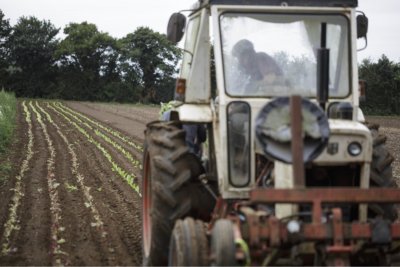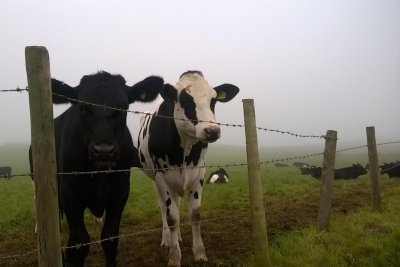News • Sustainable Farming Campaign
Sustain/UK Food Group interim response to the UK DEFRA Consultation on the CAP Sugar Regime
C/o Ms Helen Guedalla
DEFRA sugar Branch
Room 305
Nobel House,
17 Smith Square,
London,SW1P 3JR
08 January 2004
Dear Mr Kuyk,
Re:CAP Reform:Sugar consultation
Thank you for inviting our comments on the above consultation.We have been liasing extensively with our members who have specific interest in this Regime and whilst we have decided not to provide specific comment on the options at this stage of the Regime reform we do have the following principles upon which we feel any decisions should be made[1]:
Public health
1.There is an urgent need to address how reform can contribute to a reduction in the amount of sugar produced for human consumption (as opposed for other non-food uses).World oversupply continues to grow and the European Union is contributing significantly to that growth.[2] From a public health perspective,sugar is an unnecessary and harmful commodity, contributing to dental caries and other major dietary related problems such as obesity. There is a cost of the regime to consumers, which reflects the high level of protection given to this sector, which,it is suggested, suppresses consumption. Yet the institutionalised level of overproduction means sugar is in oversupply,and this sugar ultimately gets into the diet.
2.As recognised by the WHO,this is a vital issue to tackle as EU consumption should be reduced by a half to reach their recommended level of consumption of refined sugars. [3] Ideally,public protection and funds should,in future, be targeted to support provision of healthy foods such as fruit and vegetables rather than unhealthy foods such as sugar.
Environment and biodiversity
3.Any reform must be based on principles of environmental sustainability to ensure resource protection, enhance biodiversity and conserve landscapes. Measures funded by the taxpayer should encourage more environmentally friendly production in Europe, beyond the legal minimum, and encourage conversion to alternative crops or land use where appropriate.
4.Encouragement of beet farmers to apply for agri-environment and diversification grants under the RDR must be a priority and so further finance for the RDR will need to be forthcoming.
Equitable trade policy
5.As has been well documented by development groups, such as Oxfam and ActionAid, there is a clear need to stop the dumping of cheap, subsidised sugar on international markets. Poor countries are particularly vulnerable to the effects of dumping, as agriculture is usually the backbone of their economies.
6.Subsidised produce which is dumped on the world markets affects low-income countries by undermining locally grown or processed products and by depressing world prices,sometimes quite dramatically, affecting poor countries' ability to
compete internationally. This in turn leads to external costs such as environmental pollution, child labour and poor working conditions. Those who have suffered the most have been the poor farmers and sugar workers in low-income countries.
7.Dumping continues to undermine the EU's development co-operation policies despite the EU having already explicitly committed itself to ensuring policy coherence between its development co-operation efforts and other trade policies [4]. As a matter of urgency, the dumping of sugar (and other agricultural commodities)by the EU needs to stop and any regime change must ensure at the very least that export subsidies to the sugar sector are eliminated.
8.On market access, the EBA was a welcome, if limited step, and it is essential that any changes to the sugar regime are introduced with due care for poor countries dependent on revenue from cane sugar exports.Market access needs to be provided with appropriate levels of preferences. In addition, aid and assistance should be given (particularly where sugar preferences are being eroded)to convert to more profitable, value added sugar production, sugar for non-food, or to alternative crops according to their own needs and requirements for food security and sustainable production. Given the global health threat posed by increasing sugar consumption,policies should be promoted which aid the transition from sugar production or to develop alternative and sustainable uses for sugar.
EU farmers and workers
9.The livelihoods of a small but regionally significant number of EU sugar farmers and sugar workers are currently dependent on beet production and processing. Whilst this dependency partly derives from the current policy, which ensures an artificially high price and allows monopolies in the processing sector, these needs should be addressed as Regime reform ideally moves production away from beet.
10.Transitional and diversification aid should be provided through rural development and structural funds as appropriate and should be based on sustainability principles. It will be imperative to monitor moves to alternative crops to ensure biodiversity and environment are not damaged. The use of the Single Income payment on a regional basis will allow beet farmers to access direct payments for the first time for land in beet production but ideally as beet prices becomes less attractive, reduced acreages and therefore less production may result as farmers can grow other crops. To address employment issues in communities dependent on beet production and processing, it may be appropriate to target aid to create new employment opportunities along the food chain.
Given the above, it is not easy to see how any the present options on the table contribute to a reform that fits these objectives. Our diverse membership -which includes UK farmers as well as environmental and consumer groups, public health bodies and development groups – is clear that the above objectives should be paramount in reform discussions. We aim to develop a common position on specific policy options during 2004, which will reflect this diverse membership and which will help steer the debate away form the rather polarised positions, which have characterised it to date.
We hope you find the above useful – it represents a real cross stakeholder level of interest and we will be hoping for a reform based on sustainable development principles. We look forward to further dialogue and would be happy to discuss this with you.
Yours sincerely,
Vicki Hird
Policy Director
On behalf of the Sustain and UK Food Group Joint Agriculture and Trade Working Party
NOTES
1. We also have papers on sugar which are available from Sustain 'Sweet and Sour;sugar production and consumption' (2000)and 'Sugar Trade and Europe '(2000).
2. Agra Europe also states that the 'EU regime has habitually foster the annual production of approximately 30% more sugar than the annual average consumption of around 12.75mt' AE Oct 6 th 2000.
3. For instance, in Europe we currently consume (EU 15)about 100g/day.(FAO)The WHO recommendation is 50g/day max.
4. See both the 1997 Treaty of Amsterdam (Article 130)and the Union Treaty (Article C).In June 1997 the Development ouncil adopted a resolution “ensuring that agricultural exports and food aid in kind do not damage the production capacity and marketing of developing countries ”.
- ENDS -
Please click here to download the document
Published Thursday 8 January 2004
Sustainable Farming Campaign: Sustain encourages integration of sustainable food and farming into local, regional and national government policies.





